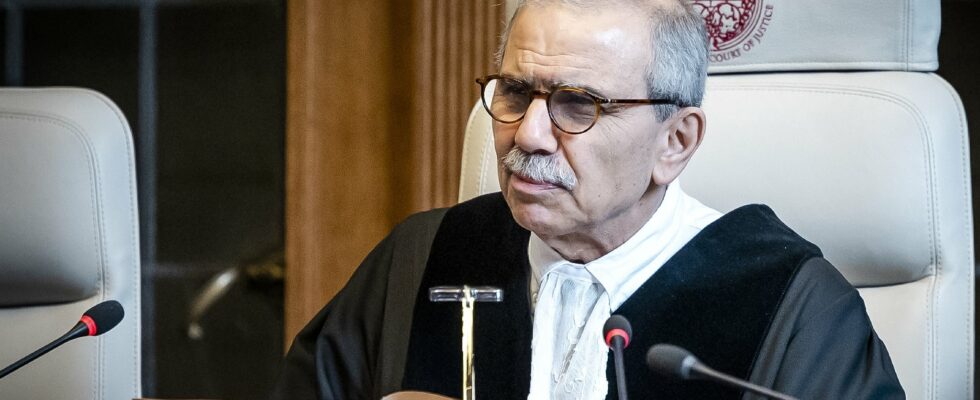Nawaf Salam, appointed this Monday, January 13 as Prime Minister of Lebanon, is an international judge and experienced diplomat, who has managed to build a reputation far from the vicissitudes of local political life.
The 71-year-old Beirut judge, from a large family involved in politics, until now held the position of president of the International Court of Justice (ICJ), the highest judicial body of the United Nations, in The Hague.
His supporters hope that his appointment will make it possible to turn the page on the domination of pro-Iranian Hezbollah on the political life of Lebanon and to change the functioning of institutions, by implementing the main lines announced by President Joseph Aoun during his speech of oath. The new prime minister won the support of 84 MPs out of a total of 128, but did not receive the votes of MPs from the pro-Iranian Shiite party Hezbollah and its ally, the Amal movement, meaning that his mission to forming the government will not be easy.
Nawaf Salam, who rarely appears in the media, had been proposed several times by deputies opposed to Hezbollah. In 2007, the government of former Prime Minister Fouad Siniora, fiercely hostile to Hezbollah, appointed him ambassador to the UN outside the diplomatic corps.
By taking the oath on January 9, Nawaf Aoun promised to open “a new era”, where the State would have “a monopoly on arms”, in an implicit message to Hezbollah, which emerged very weakened from the last war against Israel after having dominated Lebanese political life without sharing.
“Real changes”
According to university professor Ali Mrad, “the support of political forces of different origins for Nawaf Salam’s candidacy reflects the real changes that Lebanon is experiencing.” He believes that his appointment, “given the international value he represents, his firm position on the Palestinian question, his personal skills and his reformist alignment with the discourse of the presidential mandate”, represents “the true path” to be continued.
The year 2024 marked a turning point in Nawaf Salam’s career, after his election in February for three years at the head of the ICJ. In July, he announced that the court had deemed Israel’s continued presence in the Palestinian territories “illegal” and called for it to be “ended as soon as possible,” a decision described as “historic” by Palestinians. . “His role in The Hague strengthens his profile as a reformist capable of dealing with corruption and inefficiency,” said researcher Imad Salamey.
Nawaf Salam embodies hope in a country hampered by an endless political impasse and, since 2019, by the worst economic crisis it has experienced since its independence. Major protests broke out in 2019, as the country’s economy collapsed, demanding a renewal of the ruling class unchanged since the civil war (1975-1990) and accused of corruption. At that time, the name Nawaf Salam had been proposed several times, without success.
“Symbol of hope”
“Nawaf Salam is widely respected for his academic rigor, his independent views and his commitment to justice and human rights,” said Imad Salamey. According to him, “his ability to maintain an equal distance between Lebanon’s divided parties, while embodying principles of justice and governance, makes him a symbol of hope.”
Nawaf Salam served as Lebanon’s ambassador to the United Nations from 2007 to 2017, receiving the Legion of Honor from France, the former mandatory power, for this role. His wife, Sahar Baassiri, with whom he has two sons, was Lebanon’s representative to UNESCO. In his youth, he enlisted in the ranks of the Palestinian resistance in Lebanon, according to one of his relatives. He studied political science, history and law, obtaining a master’s degree from Harvard in the United States and two doctorates from Sciences Po and La Sorbonne in France.
His numerous writings include a 2004 essay on the reform of the Lebanese electoral system. Nawaf Salam will follow in the footsteps of his uncle Saeb, who led the government four times between 1952 and 1973, and his cousin Tammam, Prime Minister from 2014 to 2016.
